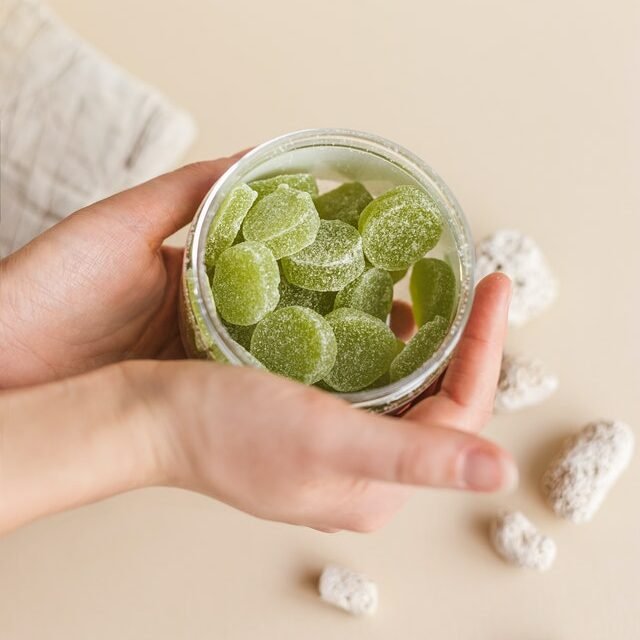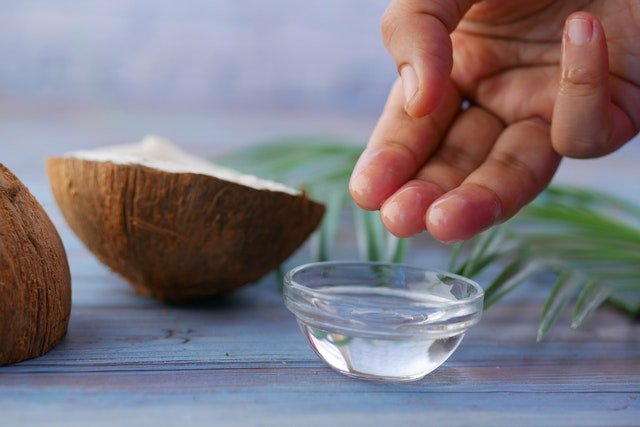Does CBD Make Your Farts Smell? (5 Reasons Why It Might)
This might come across as being a little childish, but to those it affects, it can be embarrassing and frustrating.
Anecdotally, weed smokers have also commented on having the same problems too, but is it true or does something smell off here?
In most cases, it is natural and healthy for a person to experience intestinal gas. An average person will pass gas multiple times per day.
It is not uncommon for farts to be either smelly or produce no odour at all. Both are typically considered normal.
Does CBD Make Your Farts Smell?
Passing wind with a putrid aroma or in some cases smelling of weed, can happen for various reasons. The most common reason would be down to the product itself and not necessarily CBD in general. Have you experienced obnoxious flatulence in the past or had any kind of bowel problem? If this is the case, stop using the product immediately and return it to the manufacturer for a full refund. There are a few things to consider before spending money on CBD, which may also account for the pungent scent you have been letting off. Things such as the type of CBD you have (oil or edibles), where was the product manufactured? As CBD manufactured outside America doesn’t have as stringent standards as those produced in the USA. What type of carrier oil is in the CBD? Does the CBD have terpenes in it? These are aromatic compounds found in many plants. All things considered, it would be advised that if the farts persist, stop taking the product and get to the doctors ASAP for some professional advice.
The cause of smelly flatulence can range from harmless to potentially dreadful. It may not always be easy to identify what is behind smelly flatulence due to the number of potential causes.
Many reasons for smelly flatulence revolve around food or medication. However, some causes may indicate an underlying health condition.
The following are some of the more common causes of smelly flatulence:
- intolerance to food
- high fiber in food
- medications
- constipation
- bacteria or infections
- colon cancer
1. What Type Of CBD Do You Have?
CBD is one of numerous chemical compounds found in the marijuana plant. Unlike Delta-9-tetrahydrocannabinol (THC), CBD does not produce that high feeling after use.
Depending on how you administer CBD can affect the way your body processes it.
If it’s taken under the tongue sublingually, it will go into your blood stream, where as if you ingest it in the form of sweets or any other snacks, CBD will be processed by your liver and may make your farts stink, depending on your daily diet and health etc.
Companies that manufacture CBD products use different methods to extract the compound from the plant. The varying diffusions result in a range of CBD types.
There are three types of CBD, that contain different concentrations and compounds:
- Full-spectrum: Includes all parts of the cannabis plant. Full-spectrum products contain less than 0.3% THC.
- Broad-spectrum: This contains most of the cannabis plant compounds. Unlike full-spectrum, broad-spectrum products contain trace amounts of THC.
- Isolates: Only contain CBD, with no other cannabinoids or THC. Products that contain isolate CBD may not produce any notable effects.
It has been widely reported that several CBD products make misleading claims about the use of their products. People should use caution before ordering any type of CBD.

2. Prepare For Extraction
Some would say that high grade CBD should not make you potentially pass smelly wind and that you should find some great benefits from using CBD.
Have you ever thought about how your CBD is extracted?
Make sure your products are made using CO2 extraction to remove the CBD from the hemp. The manufacturer should proudly state this on their product and website/shop.
The other main methods of CBD extraction are:
Steam Distillation – This method involves two tanks, one being a distillation tank (plant material) with an inlet and outlet. The second tank contains water through the inlet, which is situated below the distillation tank.
Steam then travels upward to the plant material tank, separating the oil vapours containing CBD. These vapours are captured in a condensing tube that turns them to oil and water.
These liquids are collected and CBD oil is separated from the water. Steam distillation is a reliable method, but can be less effective for extracting specific CBD concentrations and requires the use of more plant material per extraction, which isn’t as cost effective as CO2.
Solvent Extraction – Is similar to that of steam distillation, but instead a solvent is used rather than water.
This method can be more efficient that steam distillation, but does come with some risks. A solvent extraction includes the use of butane, alcohol, propane or compound more natural like olive oil or ethanol to extract the CBD.
Plant materials are combined or soaked with a solvent, stripping the cannabinoids. Next is the evaporation process, where the solvent used evaporates and leaves behind a concentration of cannabinoids in oil form.
Apart from the use of potentially dangerous and flammable solvents during the process effecting its popularity, the residue of solvents may not be fully evaporated in the final step, leaving potentials toxins behind in your CBD.
Many unethical hemp manufacterers use denatured ethanol for extraction. Denatured ethanol is ethanol that is intentionally poisoned with things like methanol and acetone to make it unfit for human consumption.
Some hemp processors that put profit over their customers health will try to remove as much of the denaturant that they can and use that for their extraction.
The denaturants are known to cause organ damage, nervous system damage, and even psychological damage.
Some may not even try to remove them and something like that could cause a serious issue or make your farts stink to the maximum!
3. Carrier Oils
Companies can sneak in extra additives to reduce the cost of the product with a cheaper alternative, which could account for the pungent odours coming out your back end.
A good rule of thumb is for the CBD to have three ingredients or less. The CBD extract, preferably hemp oil as the carrier oil and something for flavour would be the third ingredient such as peppermint or cinnamon.
There are a number of CBD carrier oils, so check the label and see whether this is something which you aren’t allergic to.
Some carrier oils include:
- Medium-chain triglyceride (MCT) oil
- Hemp seed oil
- Olive oil
- Avocado oil
- Coconut oil
With regards to the flavouring aspect, make sure it’s natural in its make up and not an artificial sweetened flavouring.

If the oil is very weedy, full of sediment instead of being well strained and swallowed instead of taken sublingually, it can irritate and easily upset your stomach.
There is no evidence that CBD oil could make your farts smell.
The potency of the CBD being used should also be taken into consideration. How dense the dosage of some CBD oil can be varies dramatically.
For example, some oils require you to take an entire dropper to get the recommended dose. While other CBD oil only requires a few drops!
Always read the label and never go over what the manufacturer recommends.
4. Terpenes & Strains
Full spectrum blends are considered to have the “Entourage effect” – The entourage effect is a term that refers to the enhancing, synergetic effect that occurs when the full spectrum of cannabinoids, terpenes and botanical compounds.
These naturally occur in the cannabis plant when consumed together, which is meant to amplify and increase the effects of the CBD taken.
CBD, as you perhaps already know, affects everyone differently in many different ways. There are a lot of people who are allergic to it, or your body might not like some other ingredient in the product.
Terpenes can cause this also – These are the natural compounds in the flower or bud of the cannabis plant. Terpenoids, meanwhile, are terpenes that have been chemically altered.
The process of drying and curing a cannabis flower leads to the formation of terpenes in the CBD.
Not all blends include terpenes though. Terpenes can give you a dry mouth. They are volatile aromatics that are beneficial to the body.
One method is to do the following:
Once you’ve allowed the oil to sit under the tongue between 30 seconds to 1 minute…
Immediately take a sip of water and swish around mouth, allow the oil to dilute, then swallow. Follow with a bit more water and it should help.
A common terpene is called Caryophyllene, which is abundant in black pepper.
It is also a sesquiterpene, meaning it will still be around after de-carbing. So, If your oil tastes peppery/spicy, it’s more than likely going to be caryophyllene.
One major reason for making your wind stink could be the presence of terpenes in it.
Terpenes are usually present in both full-spectrum and broad-spectrum CBD products and can cause itching or irritation in the throat, which may result in coughing.
Other components, such as Propylene Glycol (PG) and Vegetable Glycerine (VG), might exacerbate the airways and produce allergic reactions in certain people.
All reputable CBD companies offer third party testing to authenticate the calibre of the product and there will also be batch counts to ensure quality too.
The amount of brands that don’t offer this with their products still today is shocking. Always look out for them.
Checking the strain of CBD too, is something that most people don’t think about.
Is it an indica or Sativa hemp relative?
Indica is generally relaxing, whilst Sativa is up lifting. Terpenes will also steer the effect (both for THC and CBD), therefore terpenes that are uplifting will energise you and terpenes that are relaxing will calm you down.
It’s important to check the source material and terpene content of your product.
5. How Are You Doing?
This is one of the more trickier topics to cover as there’s quite a lot of variables. You have to take into account your lifestyle, do you lead a healthy lifestyle? How is your diet?
Do you eat what is considered to be a balanced diet, which mixes protein, carbohydrates, grains, fruit and vegetables with dairy products?
Do you exercise regularly for around five times a week for 30 minutes? Which includes lifting weights and cardiovascular exercise?
What is your bodyweight like? You have to take into account your weight to CBD ratio too. Im sure Chewbacca would need more CBD for his aching lower back than beloved Yoda.
Are you on any other medication? This can be a massive contributing factor when you are thinking of, or are taking CBD. Always seek the professional advice of your doctor regarding this.
The time at which you decide to take CBD can make a big difference regarding how it smell, due to it mixing with food and drink taken just before or after?
This again can be like a game of bingo at the old peoples home on a Sunday afternoon knowing when the optimum time to take that will work for you.

With everything mentioned here, its best to experiment with when you take CBD also, see what works as we’re all very different.
Some like to take it before bed, I personally take around two hours before bed and take sublingually to get the maximum effect possible, by holding under my tongue.
When you weigh up all contributing factors, it’s a tough call to make, especially if you are having problems. For most people they can take CBD without any problems and it works a treat.
Always consider the CBD you are taking regarding if the product is right for your personal requirements. What I mean is that there are CBD products made specifically for sleep, as they have added natural products that reflect this – with things such as chamomile and valerian root to name two.
Final Thoughts…
All things considered, if you have experienced smelly trumps after taking CBD, stop taking the product and see if the problem persists?
More often than not, the problems people seem to get with CBD are down to the product they are taking and not themselves.
However, you can’t overlook this and it would be wise to seek the advice of a doctor regarding this.
If you enjoy sport and use CBD to help with your recovery in between gruelling workouts, then your are in the right place. Here at Sport CBDs, we train hard and recover the best way possible…
We have regular workouts (check out the YouTube channel), CBD news and CBD products to help you gain that edge!
If you wanted to check out the reputable CBD we have on offer here at the site, then please head to the Sport CBDs Store. We also do fitness clothing and yoga accessories too.
Until next time, all the best…


